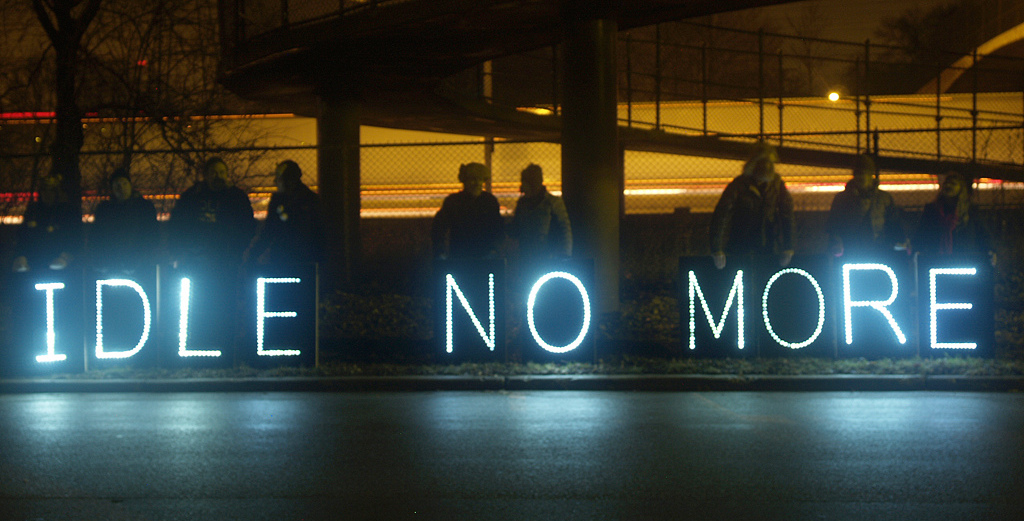Leveraging the power of social media has been a key way smaller social justice campaigns have successful amplified their voice, and larger campaigns have unified the personal experience of struggle.
Not everyone can have the backing of a major political party, NGO or other social justice group to promote their cause; causes that are often extremely important to individuals and communities who have to break through geographical, social and political isolation.
There is nothing better than watching an campaign soar thanks to a successful social media strategy.
Web 2.0 activism
For anyone who does not have Twitter or use other Web 2.0 social media platforms, haghtags amplify campaigns by allowing hive-mind thinking. They allow a quick way for anyone searching a political cause or slogan to connect the dots, one story to the next, thus painting a larger picture than one could with one person’s story alone. Not only do hashtags represent a form of information sharing, but it also builds strong bonds of solidarity that can bring in national and even international attention to a cause.
An example of this is the hashtag #IdleNoMore which was created by four women from Canada. The slogan and hashtag not only went viral here in Canada, but also internationality. #IdleNoMore posts came in from as far away as New Zealand where people shared stories of struggles and solidarity.
Sharing and solidarity
Sharing is one major way to promote inclusion and remove stigma around more intimate issues such as sexual assault, police brutality and even murder. One example of this type is the #MeToo campaign, which told stories about sexual harassment and assault told from the first person but shared as a community. For these issues impact individuals, but they also impact communities and larger society.
On a practical level, even if all someone can do is share a link and include the relevant hashtag, that’s still doing a lot. Frustrated screams and street chants often make for good hashtags. Some campaigns that come to mind are #IdleNoMore, #MeToo, #ICantBreathe and #HandsUpDontShoot come to mind.
In activism, one movement heroically builds itself up upon the lessons from the past and dreams about a better future. #MeToo has become successful by learning lessons from earlier campaigns such as #IdleNoMore, which when used together, has united Indigenous individuals and communities fighting sexual assault on a personal and newsworthy level. On a larger level, #MMIW, which stands in short form for Murdered and Missing Indigenous Women, encompasses the stories from both the #MeToo and #IdleNoMore campaigns.
Hashtags build solidarity
Simply put, hashtags build solidarity.
Perhaps you’re a seasoned activist who wants to research into intersectionality, or a new activist trying to connect the dots between different campaigns. Hashtag can allow both to happen, thereby increasing the depth and breadth of a campaign. Black Lives Matter birthed a few hashtags that came from real situations. Eric Garner’s last words, #ICantBreathe, or Michael Brown’s arrest, #HandsUpDontShoot, spawned two very important hashtags.
Struggling against shame and isolation are two of the bone crushers that the state relies upon to keep people shut up. Hashtag activism can open up dialogue around important topics and weave intersectionality and solidarity into public consciousness. Smaller cities and towns with only a handful of activists have successfully used hashtag, such as Grassy Narrows and their #RiverRun campaign for access to clean water, as a way of stitching together smaller campaigns to bigger voices.
That is fundamentally what activism is all about. Opening up issues to the wider public so people don’t have to feel so alone. That is why I rarely use the term “protest” and instead use the word “demonstration” because we are showing others, demonstrating to one another, the power that lies in our hearts; strong enough can defeat the weapons of isolation, shame and fear.
Nurturing Community
Hashtag activism nurtures community. It nurtures the creation of a shared voice of struggle. Nurtures solidarity even when we are ourselves are racked with pain.
The Idle No More is a classic example I’ll always return to when proving the power of the internet and how that platform has changed the very nature of activism itself, from direct actions to international campaigns.
#Metoo is the experience of not just one woman but the “we” in “us.” The solidarity of hashtag activism helps to combat the effects of othering’by virtually laying a kind hand on stranger’s shoulder and telling them you understood the pain, the humiliation and all the other nasty effects of sexism and misogyny.
The street chant is true: if united, we’ll never be defeated.
Photo: badsci/Flickr
Chip in to keep stories like these coming.





